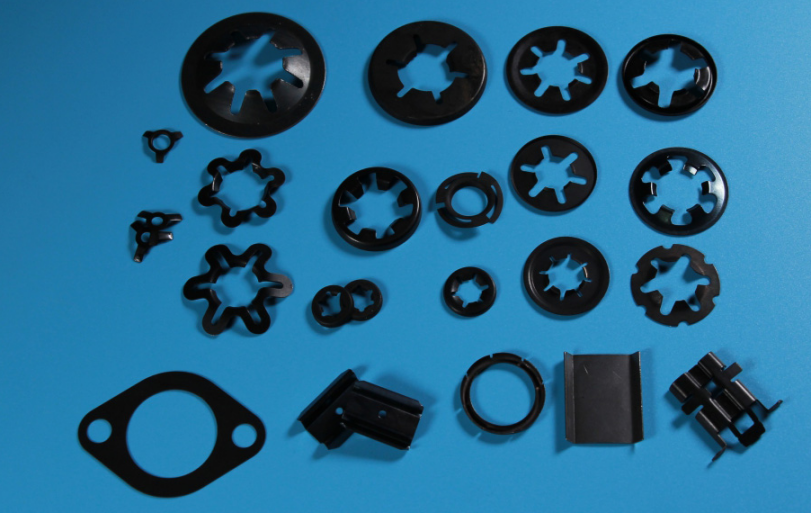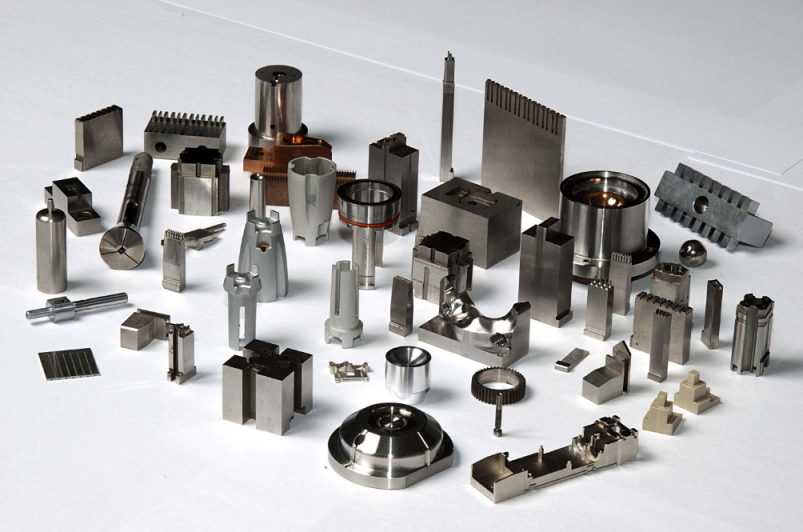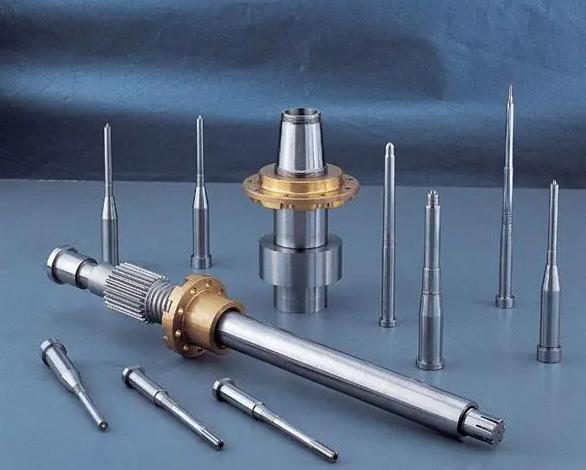Blog
We regularly update articles related to the prototyping and manufacturing industry. You’re welcome to check our previous blogs and subscribe to our newsletter.
Real-Life Applications of Precision Hardware Parts in Industry
The Crucial Impact of Precision Hardware Parts in Modern Industry
Have You Ever Thought About This?
Have you ever pondered how a seemingly insignificant bolt or washer might influence the overall performance of an entire machine? Precision hardware parts, despite often being overlooked, serve as essential components that can profoundly affect the efficiency, reliability, and safety of industrial applications. In this blog, we will explore real-world applications of precision hardware parts, examining their influence across diverse sectors, from robotics to automation, while also discussing vital considerations when selecting these indispensable components.

Real-World Applications of Precision Hardware Parts in Industry
Robotics and Automation: An Ideal Combination
Precision hardware parts occupy a fundamental position in the realms of robotics and automation. As industries progressively embrace automation technologies, the necessity for highly accurate and dependable components has reached unprecedented levels. Robots depend on precision hardware to function optimally, whether in assembly lines, medical applications, or service-oriented industries.
For instance, in the case of robotic arms utilized in manufacturing, the integrity of joints and the smoothness of movement rely heavily on precision bolts and nuts. Any malfunction of these components can lead to expensive downtimes and compromised product quality. Suppliers like Louis Machine recognize this critical need, providing precision components that conform to the most stringent quality standards, thus ensuring seamless operation of automated systems.
Moreover, the rising trend of collaborative robots, often referred to as cobots, further underscores the significance of precision hardware. These robots work alongside human operators, necessitating components that not only meet rigorous safety standards but also offer unmatched accuracy. The precision of hardware components directly contributes to the overall performance and reliability of these cutting-edge robotic systems.
Automotive Industry: Enhancing Performance
In the automotive sector, precision hardware parts are indispensable for ensuring both safety and performance. Every component, from the smallest screws to the most intricate assemblies, must operate in harmony to produce a dependable vehicle. Precision bolts, nuts, and other fittings are vital in the assembly of engines, transmissions, and braking systems, where even a minor deviation can precipitate catastrophic failures.
Manufacturers such as Louis Machine provide these critical components, ensuring they are crafted from high-quality materials and subjected to rigorous testing protocols. This unwavering commitment to quality enables automotive manufacturers to produce vehicles with confidence, secure in the knowledge that their precision hardware will function reliably under extreme conditions. For example, components exposed to elevated temperatures and intense vibrations necessitate exceptional durability, which can only be assured by utilizing high-quality precision hardware.
Furthermore, as the automotive industry transitions toward electric and autonomous vehicles, the importance of precision hardware parts continues to grow. Advanced sensors and electronic systems rely on precise fittings to function correctly. By investing in top-tier components, manufacturers can significantly enhance the safety features and overall performance of their vehicles, effectively responding to the evolving expectations of consumers.
Cost vs. Quality: The Investment Dilemma in Precision Hardware Parts
The Hidden Costs of Low-Quality Parts
In the context of precision hardware parts, the perennial debate surrounding cost versus quality is of considerable significance. Although opting for less expensive components may appear attractive initially, the long-term ramifications can be financially burdensome. Low-quality parts frequently lead to heightened maintenance demands, frequent replacements, and ultimately, production downtimes that can disrupt operational flow and damage a company’s reputation.
For example, the employment of inferior bolts and fittings in machinery can result in mechanical failures that jeopardize safety and operational efficiency. In sectors such as aerospace and automotive, where reliability is of utmost importance, the consequences of such failures can be disastrous. Suppliers like Louis Machine highlight the importance of investing in quality components to avert these issues, ensuring their clients can operate with peace of mind.
Moreover, the initial savings derived from selecting lower-quality parts can rapidly diminish when considering the expenses related to repairs, rework, and lost productivity. By investing in premium precision hardware parts, companies can improve their operational efficiency and safeguard their financial health in the long term.
The Significance of Reliability
Investing in precision hardware parts transcends merely avoiding the drawbacks associated with low-quality components; it is also about ensuring reliability. High-quality parts contribute significantly to the overall performance and durability of machinery and equipment, resulting in enhanced efficiency and decreased operational costs. Precision hardware from reputable suppliers such as Louis Machine is engineered to endure the demands of industrial applications, guaranteeing that systems operate smoothly.
Furthermore, the reliability of precision hardware extends to customer satisfaction. When companies utilize quality components, they can deliver products that meet or exceed customer expectations, thereby bolstering their reputation in the marketplace. This dependability fosters customer loyalty, prompting clients to return for future projects and solidifying the brand’s standing in the industry.
Additionally, dependable precision hardware parts are crucial for adhering to industry regulations and standards. Numerous sectors, including aerospace and medical devices, impose stringent requirements that must be fulfilled to ensure safety and efficacy. By investing in high-quality components, manufacturers can guarantee compliance while minimizing the risk of incurring costly penalties.
Common Errors in Selecting Precision Hardware Parts
Ignoring Specifications
One prevalent error that companies commit when selecting precision hardware parts is the oversight of specifications. It is essential to grasp the specific requirements of an application, including dimensions, material properties, and tolerances. Neglecting to consider these factors can result in compatibility challenges and diminished performance, ultimately affecting the overall quality of the final product.

For instance, employing a bolt that fails to meet the necessary tensile strength can jeopardize the integrity of a crucial assembly. Manufacturers like Louis Machine offer detailed specifications for their precision hardware parts, aiding clients in making informed decisions that align with their operational necessities.
In addition, the selection of materials can profoundly influence the performance of hardware components. Companies must take into account aspects such as corrosion resistance, temperature tolerance, and strength when choosing materials. Disregarding these specifications can lead to premature wear and failure, resulting in increased maintenance expenses and production interruptions.
Underestimating Supplier Reliability
Another frequent misstep companies make is underestimating the significance of supplier reliability. Selecting a supplier based solely on cost can yield detrimental outcomes. Quality and consistency should be prioritized when identifying a precision hardware parts supplier. Collaborating with esteemed suppliers like Louis Machine ensures that businesses receive high-quality components that fulfill their specific requirements.
A dependable supplier not only delivers quality products but also provides valuable insights into industry trends, new materials, and best practices. Such collaboration can bolster a company’s capacity to innovate and remain competitive in a rapidly changing market. By prioritizing supplier reliability, businesses can secure the support necessary to achieve their operational objectives.
Moreover, a trustworthy supplier will have established quality control measures in place to guarantee that every component meets rigorous standards. This reliability helps mitigate the risk of defects and failures, ultimately contributing to enhanced operational efficiency.
Exploring the Materials: What Defines Precision in Hardware Parts?
The Importance of Material Selection
The materials employed in precision hardware parts play an instrumental role in shaping their performance and longevity. Premium materials such as stainless steel, aluminum, and specialized alloys are frequently favored for their strength, durability, and wear resistance. Understanding the characteristics of these materials is crucial for ensuring that hardware components can withstand the specific demands of their applications.
For instance, stainless steel is a popular choice in precision hardware due to its remarkable corrosion resistance and strength. This makes it particularly suitable for applications in challenging environments, such as marine or chemical processing. Companies like Louis Machine source materials that adhere to the highest standards, ensuring that their precision parts can perform consistently across diverse conditions.
Additionally, the choice of material can influence the manufacturing process itself. Different materials may necessitate distinct machining techniques, heat treatments, or coatings to achieve the desired precision and performance. By partnering with knowledgeable suppliers, manufacturers can select the most appropriate materials for their requirements, optimizing both performance and cost.
Innovations in Material Technology
The advancements in material technology have ushered in new opportunities for precision hardware parts. Innovative materials, such as carbon fiber composites and titanium alloys, exhibit unique properties that can enhance performance in specialized applications. These materials provide an excellent strength-to-weight ratio, making them ideal for industries such as aerospace and automotive, where weight reduction is of paramount importance.
Furthermore, advancements in surface treatments and coatings can further elevate the performance of precision hardware parts. Techniques such as anodizing, galvanizing, and various coatings can enhance corrosion resistance, decrease friction, and prolong the lifespan of components. It is imperative for companies to stay abreast of these innovations to leverage the latest technologies in their selection of precision hardware.

By investigating materials and comprehending their properties, manufacturers can make informed decisions that bolster the performance and reliability of their products. This understanding is essential for maintaining a competitive advantage in today’s fast-paced industrial environment.
Conclusion
Precision hardware parts are indispensable across a multitude of industries, from robotics to automotive manufacturing. Recognizing their real-world applications and the essential factors involved in selecting quality components can dramatically influence operational efficiency and product reliability. By emphasizing cost, quality, and supplier reliability, companies like Louis Machine can ensure prudent investments in precision hardware. As the industry progresses, remaining informed about materials and technological advancements will be vital for manufacturers aspiring to excel in their respective fields.





